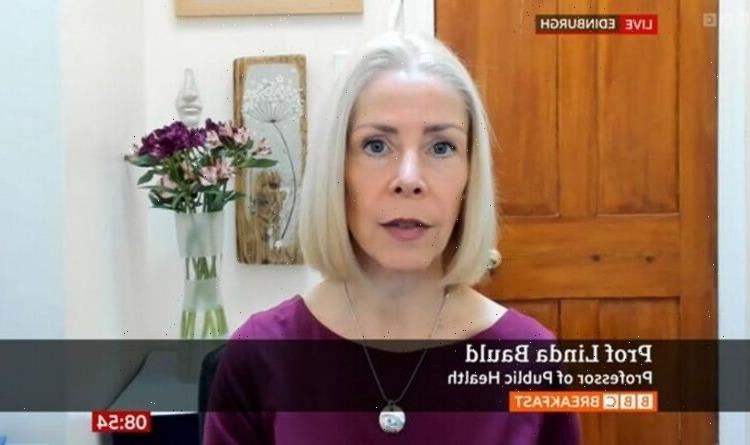Deltacron: Cyprus confirms discovery of COVID variant
We use your sign-up to provide content in ways you’ve consented to and to improve our understanding of you. This may include adverts from us and 3rd parties based on our understanding. You can unsubscribe at any time. More info
Speaking on BBC Breakfast this morning Professor Linda Bauld said Deltacron was: “a recombinant variant, meaning it brings together features of Delta and Omicron”. The reason why Deltacron has been of initial concern is over which parts of Delta and Omicron it brings together. If it brought together the serious illness of Delta with the transmissibility of Omicron, this could cause a serious issue for a government that had just lifted all restrictions, like UK’s
However, it seems Deltacron may not be as serious as first thought.
Dr Bauld continued: “At the moment there’s no evidence to suggest this new variant will challenge our vaccines.
“Our vaccines are holding up well against both Omicron and Delta, but of course, we are going to continue to see variants. One of the reasons why the WHO continues to say that we need push infection levels lower around world and roll out vaccines at pace is we want to avoid a variant in future that will cause real concern.”

Professor Bauld also stressed the need for the UK to remain vigilant even though all restrictions had been lifted.
Bauld stressed: “We need to keep testing so that we can sequence these PCR tests and look for these variants and then identify whether they are a problem or not”.
However, with Deltacron she concluded that there was: “no need to panic”.
Professor Chris Smith, also on BBC Breakfast at the time, added similar reassurances.
Recently the UK decided to lift all restrictions, including the legal requirement to self-isolate if a person tests positive for Covid-19.
Alpha, Delta, Omicron, BA.2, and now Deltacron; sometimes it can feel as though Covid-19 has had more regenerations than Doctor Who.
The truth is that it probably has.
Since the world first became aware of Covid at the end of 2019 and the beginning of 2020, the virus has mutated and changed numerous times.
Sometimes these changes have been minor and not given cause for panic while on other occasions a variant has changed the path of the pandemic completely.

Omicron was one example.
When it was discovered that it could evade the immune response of two doses of vaccine, the NHS went into overdrive to give as many booster doses as possible.
Although Omicron is less serious than the Delta variant, it shows that even though Covid may not be as deadly as it once was, a new variant could still develop that turns all that on its head.
It is for this reason that scientists take such a keen interest in new variants like Deltacron.

Recently the government decided to remove the last of it’s Covid restrictions.
This included the legal requirement to self-isolate if a person test’s positive.
Recently doctor’s have announced they are sceptical over the use of a fourth dose of the vaccine.
More information can be found on the government’s website.
Source: Read Full Article






